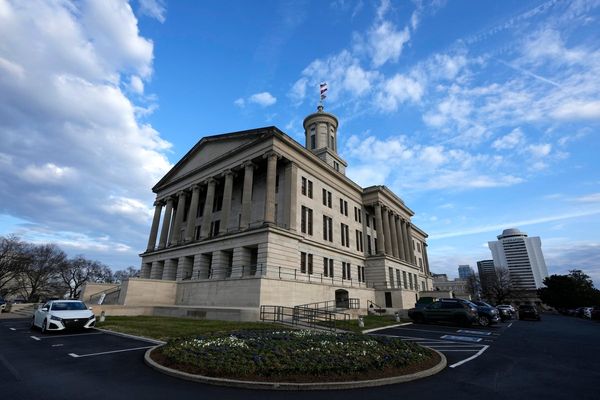
The tobacco wars just shot a $6.9bn hole in the federal budget. A wave of crime in otherwise quiet suburbs has now become a structural drag on the nation’s finances.
The treasurer, Jim Chalmers, admits there’s “a very serious problem” that must be addressed. But there’s disagreement about how to best solve it. And until that happens, major healthcare policies – including those that deal with the damage caused by tobacco – become harder to pay for.
How has this happened?
In an effort to stop people smoking, the Australian government places high taxes on tobacco. These have steadily increased in recent years, and they have been very effective at lowering smoking rates.
But it has also contributed to a separate problem. As the price of cigarettes has increased during a cost-of-living crisis, criminals have sold illicit tobacco at lower prices, undercutting the legal market. Rival gangs have competed to control the black market trade.
As more people buy cheaper and illegal cigarettes, the amount of money going to government coffers drops.
What impact will this have on the budget?
Revenue generated by the tobacco excise has been falling for a few years now, but it has now dropped to the lowest level in 14 years.
In 2011-12, the federal government pocketed $16.3bn from the excise. Next financial year, it’ll be just $7.1bn, a drop of more than 50%.
The money being lost will only increase, according to the budget papers. Treasury forecasts tobacco excise will be slashed by $6.9bn over the next four years.
That would almost cover the cost of the Albanese government’s signature healthcare policy. Boosting bulk-billing rates for all Australians will cost $8.5bn over four years. That has been badged as the biggest investment in Medicare since the 1980s.
The budget already has structural challenges, including how to pay for vital but expensive programs like the national disability insurance scheme.
Chalmers says this “problem” must be addressed. “We need to collect more of this excise because we’ve got a problem in people avoiding it,” he said on Tuesday.
What is the government doing about this?
It’s allocating more money to help police forces stamp out the illicit tobacco trade.
An extra $157m will be dedicated to enforcement action. Close to $50m will go to the Australian federal police and $40m to state and territory police forces.
There has been no change to the excise rate. Chalmers says he would rather give tax relief to Australians, rather than the tobacco industry.
Why not reduce the excise to remove the criminal incentive?
This is what the tobacco industry and some criminologists – like Dr James Martin from Deakin University – want. They argue it will hurt the black market, bring more people back to legal cigarettes and boost government revenue.
“Why on earth are we listening to the World Health Organization when they have no expertise on illicit markets and organised crime? It’s beyond me,” Martin says.
But public health experts strongly disagree. Becky Freeman from the University of Sydney says there is an enforcement problem, not a tobacco tax problem.
“We don’t want people smoking at all, be that taxed cigarettes or illicit tobacco. To protect both your health – and your bank balance – not smoking has to be the focus,” Freeman says.
Her colleague Simon Chapman says the excise would need to be almost entirely removed to make legal cigarettes as cheap as those sold on the black market.
“Even then, we don’t know how much further the illegal suppliers could drop their prices,” Chapman says. “We cannot solve this problem by tax cuts.”
Will these new enforcement measures have an impact?
Chapman believes the money will have an impact if it leads to “some really big show trials” that impose large fines or even jail criminal network leaders. But he warns the issue won’t disappear.
“No regime of policing will get rid of illegal tobacco altogether,” Chapman says. “There is no country in the world that has no illegal tobacco.”
Martin says the additional money announced was “nowhere near what you need to tackle the black market”.
“This isn’t just a money problem,” Martin says. “Supply side interventions targeting illicit drug markets have been really ineffective at reducing supply and availability.”







